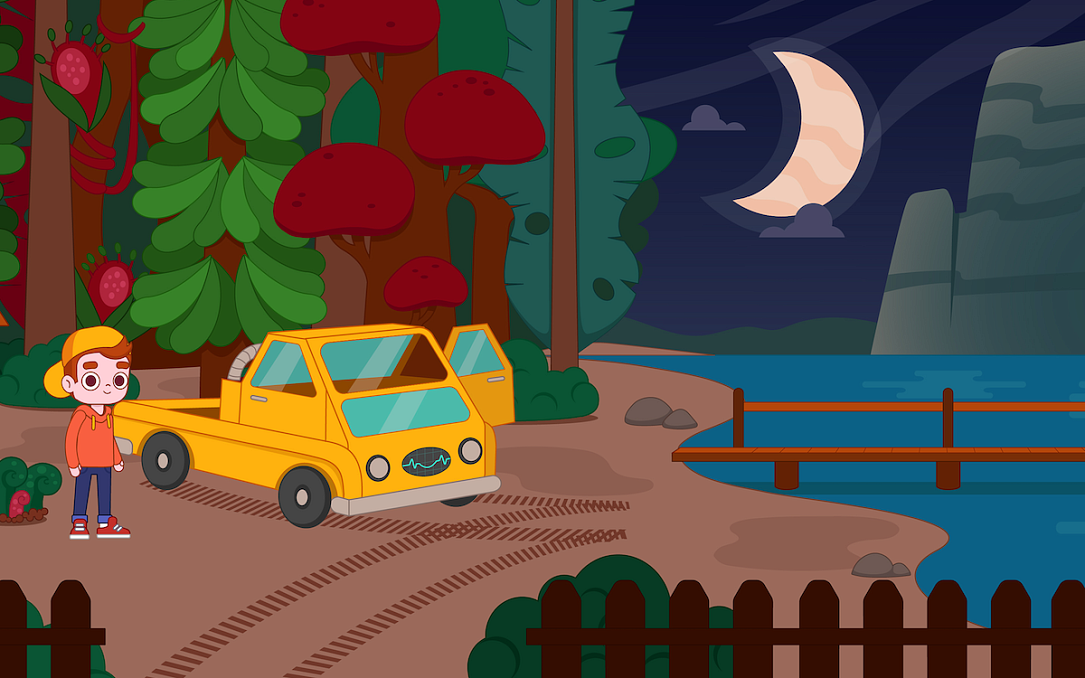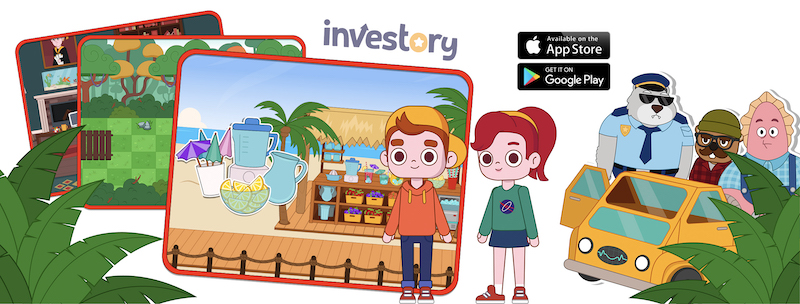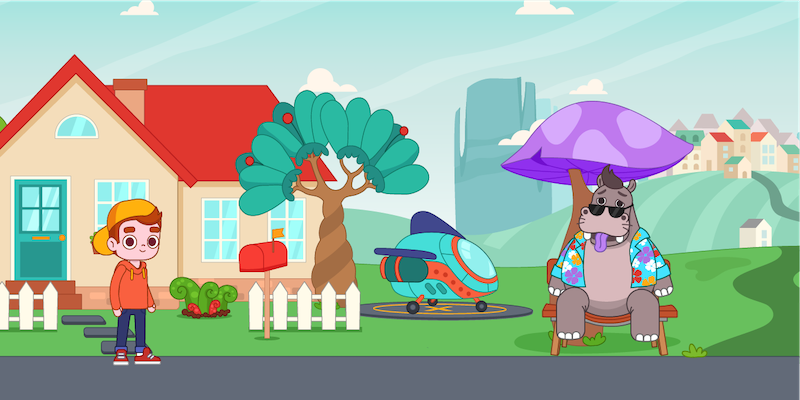Let the games begin: Discover Investory, the Romanian app that makes financial education fun for kids

Learning about money can be boring but being smart with money is an important life skill. Unfortunately, not many of today's adults have been equipped with the knowledge to manage their finances effectively, and this is also a fact in Romania. Two local entrepreneurs created Investory, an app that aims to help change things for the better by making financial education fun for kids through games. We've talked to co-founder Monica Tarmure to discover how Investory works and why financial education is important at a young age.
Financial education has a significant impact on everyday life. Living expenses, savings, bills, cash or card - we all have to face these economic realities and act on them. But not many have the necessary skills to make the best decisions, with countries around the world facing low levels of financial literacy. And things are pretty bad in Romania too. According to data compiled by the Romanian Banks' Association (ARB), for example, the country is last in the European Union and among the last in the world in terms of financial literacy. One of the main causes is that kids have been receiving little or no financial education, and this is really bad news as studies have shown that money habits and concepts are set at young ages (up to 7 years old).
Local entrepreneurs Monica Tarmure and Valentin Filip have created an app that makes financial education a fun activity for children. Called Investory, the app can be downloaded worldwide, and the games can be played free of charge. And the founders are actively seeking financing to fuel the startup's growth and make their application an even more valuable tool for financial education.

Investory - how it started
Investory is a financial education game for children between the ages of 6 and 10. It was launched a little over two years ago after in-depth market research, dozens of interviews with parents and children, and recommendations from specialists. It can be downloaded worldwide from the App Store and Google Play, and so far, it has gathered a community of about 250,000 users.
Its story started from a personal experience - work colleagues discussing holiday plans during a coffee break. And as planning a vacation also leads to talks about money (do we afford to go on a city break?), Monica Tarmure realized that managing finances is not something she or several of her colleagues excel at.
"While talking about this at the next coffee break, we realized that we didn't learn much about money when we were little because our parents didn't know how to teach us either. And we faced enough difficulties - at the first job, at negotiations, at the first rent and so on. That's when I thought: well if this was a problem for us, it means that others may have the same problem. So we started to take a closer look into it," Monica Tarmure told Romania-insider.com.
So they started to talk to parents, children, friends, teenagers, and teachers and conduct several studies to better understand the source of this problem and find a solution. They also looked at what's happening outside Romania, in the US, France, or Italy, and discovered similar issues. One thing led to another, and after long research, they came to the conclusion that financial education and basic financial habits are formed by the age of 7. From there on, one simply builds on this foundation.
"And then I said: okay, if there has to be a solution oriented towards children, what should it look like? So we went and asked the children because if they are going to use a solution, it must be something they like," Monica said.
And children's responses were somewhat expected: school is not fun, finances are boring, they'd prefer to play games on phones. So what's the best way to teach the juniors something? Well, the answer became quite obvious: through games. And a game that can be played on a mobile device would be an even more successful option.
"We also thought of this: if there's a need for financial education and if children are anyway wasting time on the phone, let them waste it in a way in which they learn something," Monica further explained.
That's how the idea of teaching children about money through games was born and took the form of a mobile app.

How does Investory work?
Users trying to find Investory in Google Play or App Store should look for the image of a cute orange cat - that's the logo of the Romanian app. Then, the games can begin once the app is downloaded on the phone or tablet. Kids can play free of charge if they don't mind being interrupted by some ads or enjoy the premium version for a fee. But overall, anyone can meet the Investory characters and play on Planet C-001 for free.
"The game is free precisely because those who need financial education are of various kinds. And there aren't many who can afford to pay whatever amount for a mobile game, and then that's what we want: our goal is to educate as many children as possible, from Romania and abroad, because the need for financial education is everywhere," Monica Tarmure explained.
There are two versions of the app - the local one in Romanian and the international one in English. So, no matter where the users are from, everyone can download the app and start to solve the mysteries and tasks on the Investory planet.
As Monica explains, from what the children see, the game has nothing to do with money. They move to a new planet and have to discover what is happening in that world. And at some point, they meet the funny detective Ace, who has various requests, various needs that must be fulfilled. First, he is thirsty, so players must find a way to help him. Plus, they will also find out that the detective is working on a super case: the plans for the best-selling toy on the planet were stolen. And then, throughout module 1, they have to find out who exactly stole those plans.
To solve this mission, kids have to complete several tasks and adventures through which they learn (and practice) various financial concepts. They learn what it means to buy things from the store, for example, and make the difference between needs and wants. They can buy chocolate from the store or opt for seeds they can later plant, harvest the fruits, and then use them to make smoothies and juices that can later be sold for money. So the children practically have their first business and start making money, which will allow them to buy all kinds of things that will help them reach the next mission.
"All the time, all the actions they do in the game practically teach them this basic financial ethics and the financial concepts they need," Monica Tarmure explained.

Investory has already gathered a community of around 250,000 users, which would translate into about 250,000 kids who learned at least one new thing about money and finance management. And the co-founders plan to increase the number to 300-350,000 by the end of the year while adding new features and more missions to the game.
Roughly half of the users are from Romania, but juniors from countries such as the US, France, Germany, Nordic countries, Turkey, or Greece have also been playing the game.
"We worried that the language barrier might be a problem because the international version is only in English, but what I noticed is that the language is universal, and it doesn't even matter that much what the characters say if the game is intuitive. Then children understand what they have to do and the principles without many words," Monica further explained.
The two entrepreneurs covered the app's development with a financing of EUR 300,000 from angel investors. Now, they're actively looking to attract new funds and B2B partnerships, as their target is to start collaborations with financial institutions, schools, and so on.
"What we've accomplished is quite fantastic, and I can say that we now have the secret recipe for a successful startup. I mean, we now know what children are looking for, we know what should be in the game to make it profitable, and what are the next steps we must take for the public in Romania and abroad," the co-founder said.
Financial education is essential at a young age
Things look pretty bad in Romania (and the world) when it comes to people's money skills and financial literacy. And as many adults find it difficult to understand basic financial concepts, passing on any knowledge to children basically becomes mission impossible. In Romania, this situation could have the communist era as a primary source, as back then, people had just enough money to cover their basic needs: buy food and ensure living conditions.
"After the Revolution, things improved for some, but for the majority of people they did not - most are still there, they're still making sure they have enough to cover the basic needs," Monica Tarmure believes.
Plus, after the 1989 Revolution, which ended the communist rule in Romania, people started having access to many things, and this meant they could go out and buy everything they wanted - a new TV, a mobile phone, and so on. Some even made bigger expenses for which they took bank loans that they failed to repay. And in turn, this led to significant debts and serious financial problems.
And now, even with dedicated financial courses for adults, things don't seem to improve very much, as many don't have that that necessary basic foundation to build on, which is formed at young ages.
But, Monica says, parents could still teach their children small things - to let them have a piggy bank, to take them shopping and let them choose the box of cereals they want and see the differences in prices, and so on. So, by the time they go to school, they will already have some skills and knowledge about how money works. And, of course, further financial education courses at school would make things even better.
Irina Marica, irina.marica@romania-insider.com
(Photos: courtesy of Monica Tarmure)













